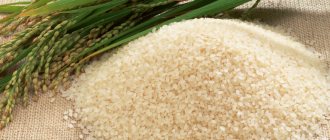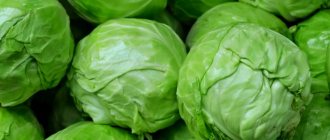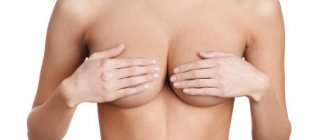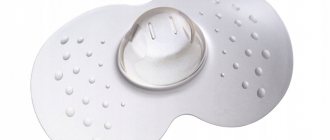Why does a cough appear and how does it happen?
The most common cause of cough is a cold. In this case, cough is only one of the symptoms of the disease. Perhaps you took a walk with your baby in cold weather or were in a draft for a long time. In addition to cough, respiratory disease may be accompanied by:
- runny nose;
- increased body temperature;
- sore throat;
- weakness;
- general malaise.
Causes of cough can also be a viral or bacterial infection, allergies, and in rare cases, heart problems or pulmonary failure.
Cough can be a symptom of many diseases
Types of cough
A cough, in essence, is a spasm of the respiratory tract - upper (larynx) or lower (bronchi). This phenomenon is a protective reaction of the body, which tries to get rid of microbes by reflexive muscle contraction.
The following types of cough are distinguished:
- dry (unproductive, barking or paroxysmal, without sputum discharge);
- wet (productive, with sputum discharge, may be accompanied by wheezing, heaviness and chest pain).
In the first days of the disease, as a rule, the cough is dry. This indicates that the throat and upper respiratory tract are irritated. After a few days, the dry cough becomes wet. This means that the disease has entered another phase. But there may be another, unfavorable scenario - a dry cough will “sink” into the bronchi, they will become inflamed and swollen. In this case, it is problematic to cough up phlegm; the cough causes anxiety and becomes heavy and chesty. In the absence of adequate treatment, complications are likely to develop: bronchitis, pneumonia and others. A cough must be taken seriously and treated as soon as possible, without hoping that it will go away on its own.
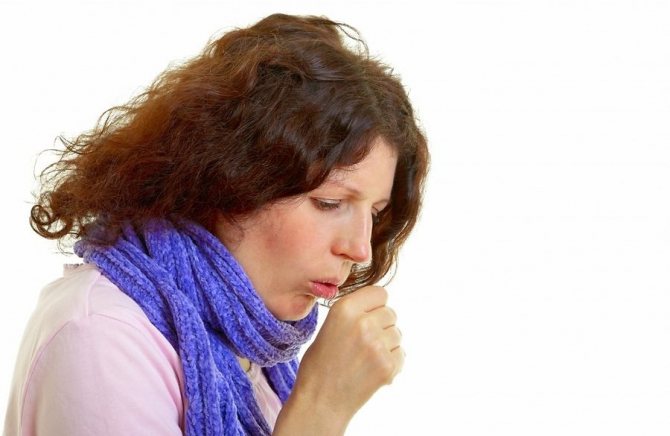
Cough can cause serious discomfort, so treatment should be started as early as possible.
Mom's cough: is it possible to breastfeed?
When a cough occurs, caring mothers experience reasonable concern for the baby. However, coughing is not a reason to stop breastfeeding. On the contrary, if the child does become infected during communication, mother’s milk will help him cope with the disease faster. Interferons - antibodies to the virus that are released in the body during illness - enter the milk and are passed on to the baby.
The following precautions will help minimize the risk of infection for your child:
- It is recommended to wear a medical mask and change it to a new one every two hours.
- It is necessary to ventilate the room several times a day, regularly wash your hands with soap, especially before feeding.
- It is necessary to increase the volume of liquid consumed: water, compotes, tea. This will prevent lactostasis due to an increase in milk viscosity at elevated body temperatures. Water also helps remove toxins and ease the course of the disease. Additional fluid helps your cough change from dry to wet and allows you to get rid of phlegm faster.
When breastfeeding, the mother is responsible not only for her own health, but also for the well-being of the baby. It is necessary to consult a doctor who will help you choose a comprehensive treatment for cough, which is a symptom of the disease. The specialist will make a diagnosis and give the necessary recommendations.
Toxicity of drug components present in milk
The components of those medications that women take during lactation (as prescribed by a doctor) pass into breast milk in a certain amount. Their concentration in it is quite low. It is less than the therapeutic dose for a child and, accordingly, cannot pose a threat to his body. Toxic phenomena sometimes occur due to long-term use of drugs (components enter the child’s body, accumulate, but are not eliminated so quickly).
Suspicious symptoms usually occur in infants under 5 months of age. The risk group includes newborns and premature babies. In older children, toxic effects occur extremely rarely, because at this age they already begin to receive complementary foods and eat additional formulas (i.e., “medicated” milk is only part of the diet).
It is also worth remembering that children's behavior may change not due to the effects of a specific drug. The fact is that the treatment of cough during breastfeeding affects the milk. The medications you take change its taste. Children may cry or refuse to breastfeed because of this.
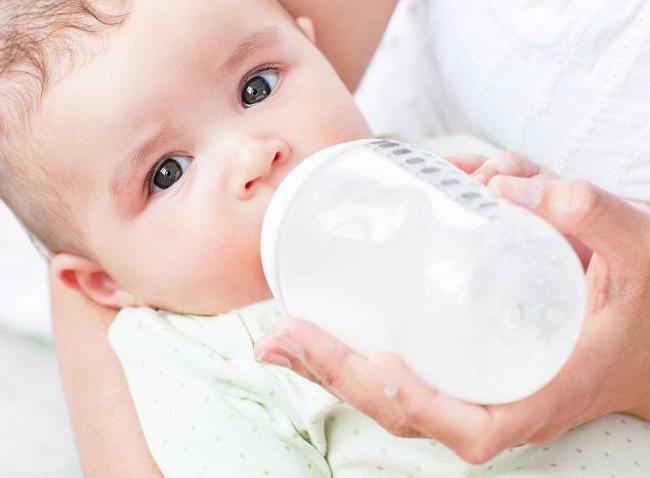
How to treat cough while breastfeeding
In the first days of a cough, it is necessary to drink plenty of fluids and avoid long walks in cool weather. Inhalations with medicinal herbs of the upper respiratory tract are allowed in the absence of fever. Folk remedies that alleviate the condition at the first signs of the disease are also relevant. However, the doctor will select the optimal treatment for a nursing mother, taking into account contraindications for breastfeeding. Medicines approved for use during breastfeeding are available in various forms, among which the most common are syrups, tablets, and sprays.
To minimize the proportion of medicine that enters the baby's body with milk, it should be taken immediately after feeding. Then, by the next application to the breast, the concentration of the active substance will be less.
Medicines for dry cough
The tactics for treating dry cough are to alleviate the condition and moisturize the mucous membrane. It is necessary to monitor the air humidity in the room and ensure plenty of drinking. You can also take the following medications.
Syrups with medicinal plant extracts
Syrups for dry coughs with extracts of medicinal plants (thyme, ivy, thyme, anise and others) promote the formation of sputum. These include Gerbion, Gedelix, Prospan. Such drugs have no contraindications during breastfeeding, but clinical trials have not been conducted on lactating women. The cost of the listed syrups is about 300–400 rubles per 100 ml bottle. Licorice and marshmallow root syrups, known since Soviet times, are a little cheaper. The cost of a bottle is 80–150 rubles. The duration of taking this product is 5-7 days when used 2-3 times during the day.
Photo gallery: common syrups with medicinal plant extracts
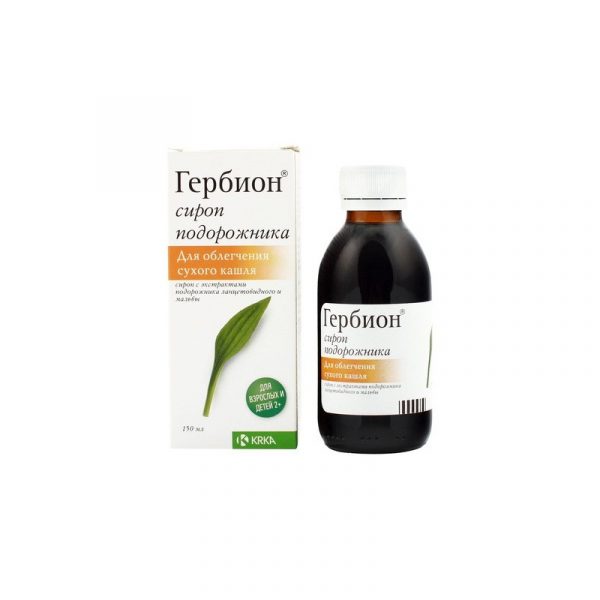
Gerbion cough syrup is available in several forms: with plantain extract to combat dry coughs, with primrose and ivy extracts to combat wet coughs
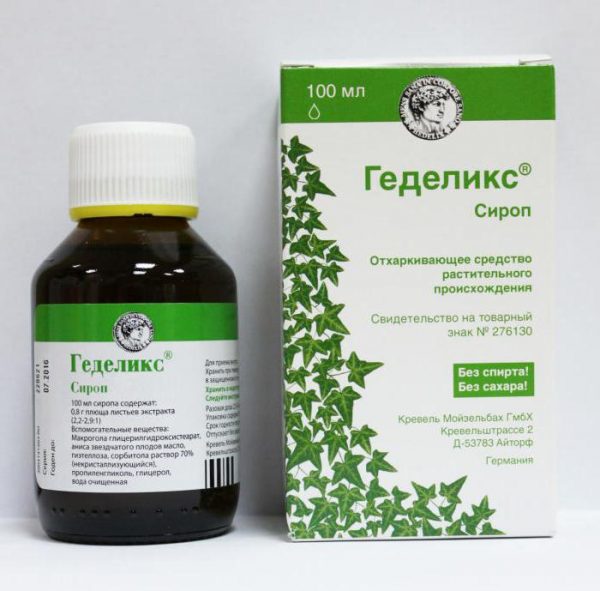
Gedelix is an extract of ivy leaves
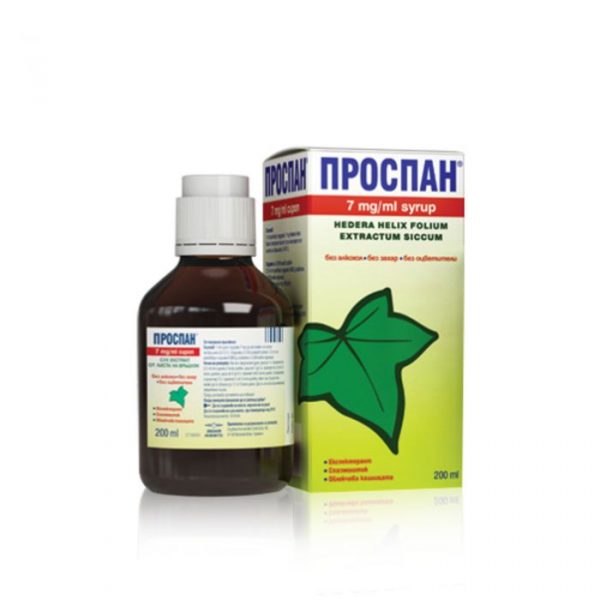
The active ingredient of Prospan is dry ivy leaf extract
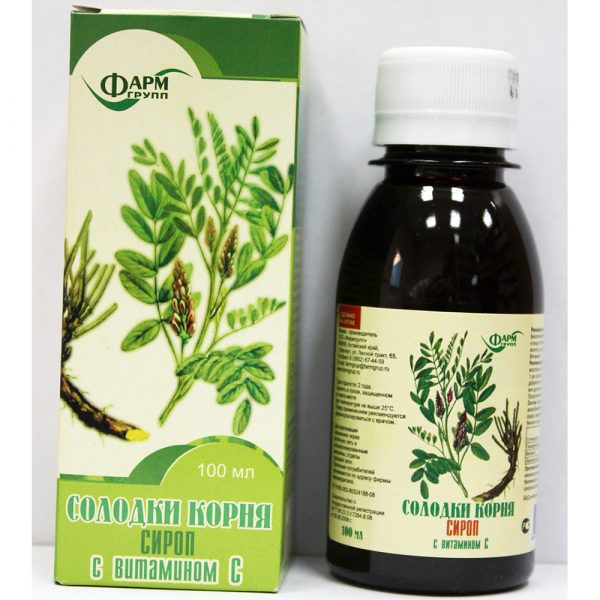
Licorice root has an expectorant, enveloping and cough softening effect.
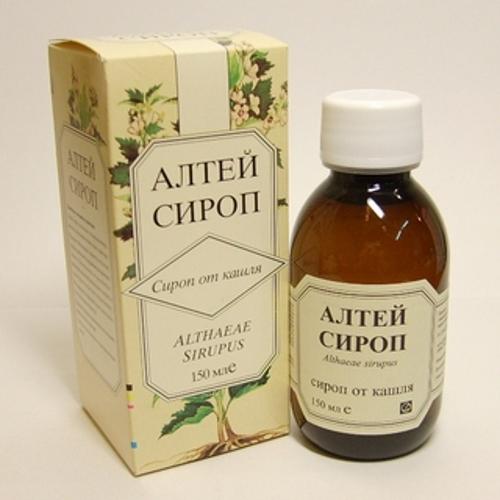
When consumed, marshmallow root syrup coats inflamed mucous membranes and protects them from irritation.
Medicinal plants
In addition to syrups, medicinal plants are produced in the form of cough preparations, but not all of them are suitable for nursing mothers.
The fees have a complex effect on the body and can negatively affect the baby’s well-being. In addition, many plants are strong allergens. Among the most harmless herbs acceptable for the treatment of cough during lactation: chamomile, rose hips, peppermint.
Photo gallery: safe to use medicinal plants for coughs in a nursing mother
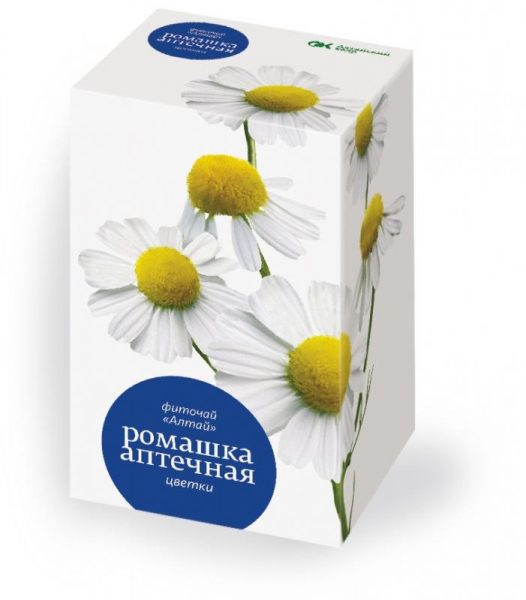
When breastfeeding, it is better to use pure chamomile rather than a collection
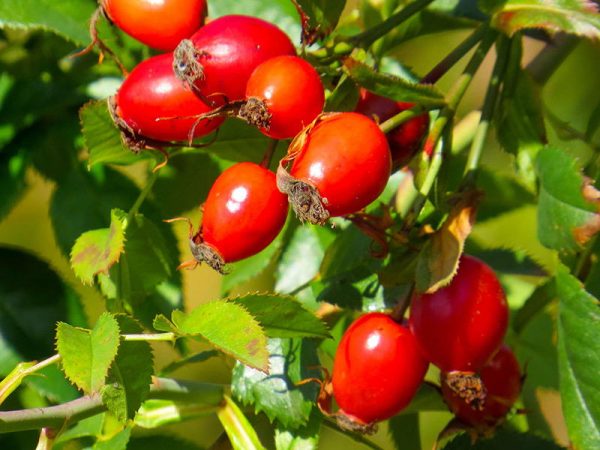
Rose hips will help fight cough
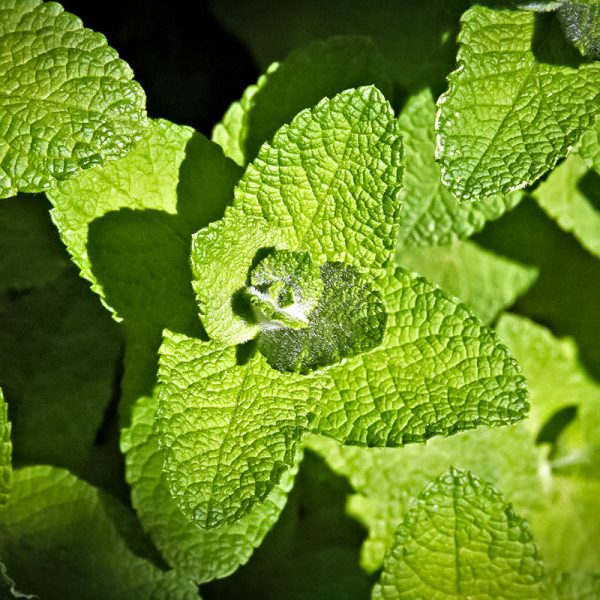
Mint tea is not only healthy, but also delicious.
With medicinal plants, you can also do steam inhalations that affect the upper respiratory tract. Eucalyptus, menthol, and essential oils are suitable for these purposes.
Attention! Oil solutions for inhalation can only be used in steam inhalers. In nebulizers it is permissible to use only special, purified solutions.
A product that combines extracts of several medicinal plants - Brusniver. The composition of the drug includes lingonberry leaves, St. John's wort, rose hips, and string. Filter bags are brewed with boiling water (2 pieces per 200 ml of water) and taken 3-4 times a day, a quarter glass. The infusion has antimicrobial and anti-inflammatory effects.
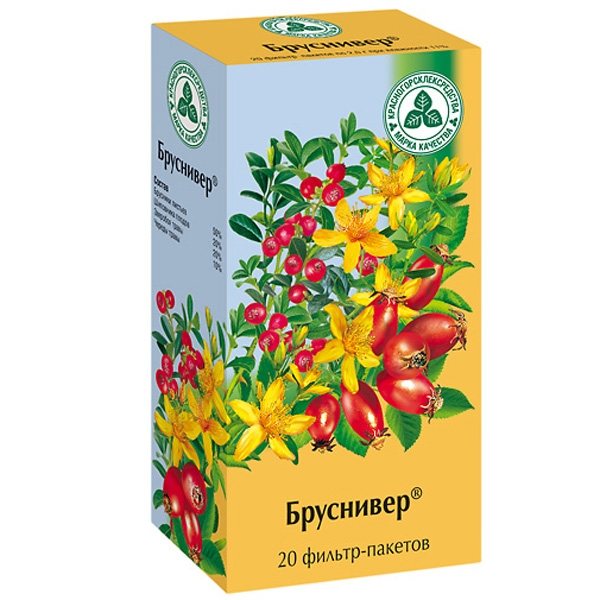
Brusniver is distributed in convenient filter bags
Rinses and lozenges
If the cough is caused by throat irritation and is accompanied by a sore throat, rinsing with Furacilin diluted in water or an alcohol solution of Chlorophyllipt is relevant. Lizobact tablets will also help calm inflammation.
Photo gallery: medicines for rinsing and lozenges
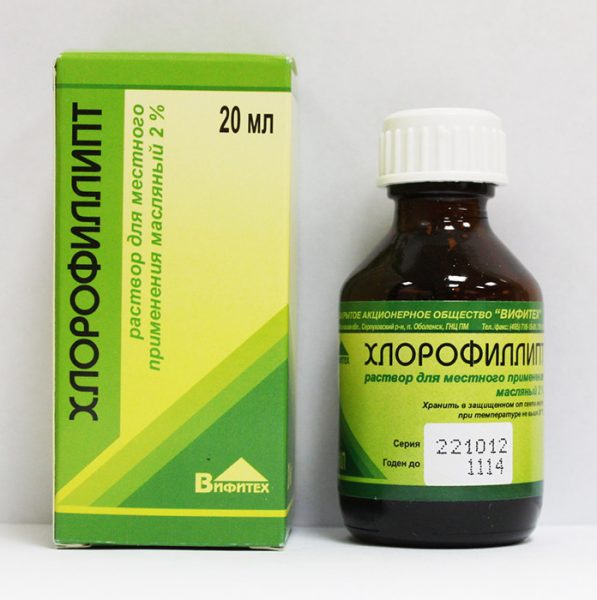
If your throat is sore, use an alcohol solution of Chlorophyllipt.
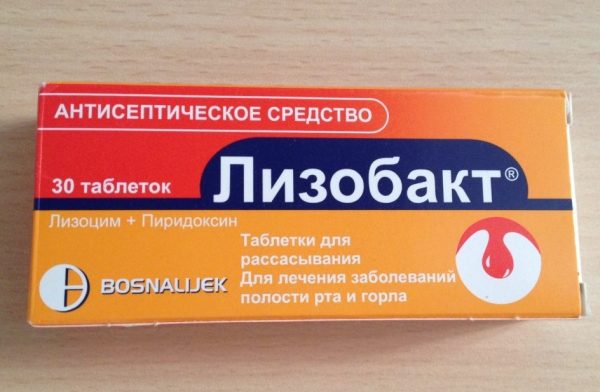
Lizobact tablets will help soothe a sore throat
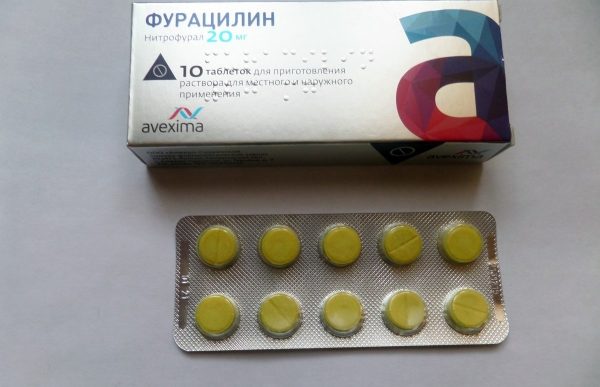
If your throat is irritated, gargle it with Furacilin diluted in water.
Sprays
Sprays are relevant if the cough is provoked by pathogenic microflora that affects the mucous membrane of the throat. In this case, cough occurs due to tissue irritation during breathing.
Hexoral spray is highly effective and lasts up to 12 hours. The cost of the drug is 350–400 rubles per bottle. Antibacterial spray Chlorophyllipt (250–300 rubles) has a depressant effect on streptococcal throat infections; the active substance is eucalyptus leaf extract.
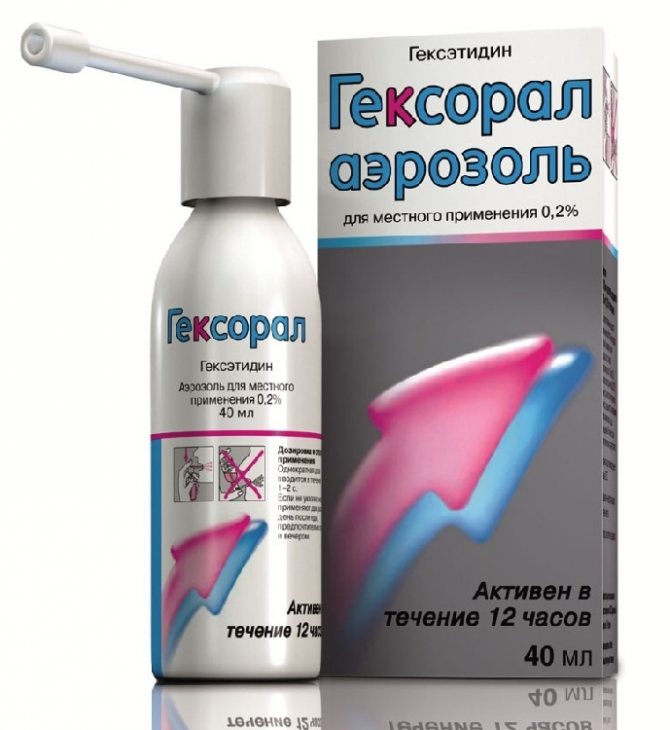
Hexoral spray is highly effective
Among the previously popular sprays recommended for coughs during lactation is Tantum Verde. Its use during breastfeeding is currently not recommended.
Inhalation with a nebulizer
The nebulizer turns the medicine into an aerosol, consisting of tiny particles suspended in the air, which penetrate even the lower parts of the respiratory system. In this case, the drug is almost not absorbed into the blood, which is especially important during breastfeeding, but goes directly to the source of infection.
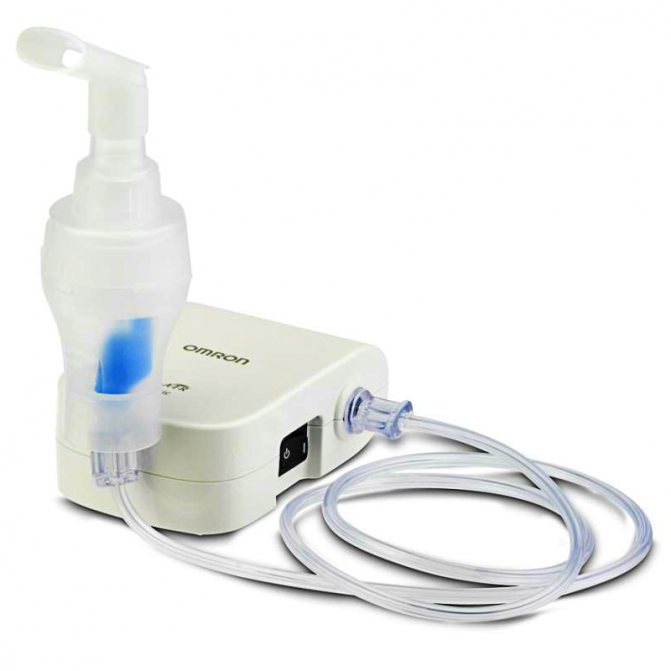
When using a nebulizer, the medicine reaches the site of infection
For a dry cough, you can inhale saline or mineral water to moisturize the mucous membranes. Using Miramistin for inhalation, you can treat the nasopharynx with a disinfectant and suppress the activity of pathogenic microbes. For allergic dry cough and asthma, inhalations with bronchodilators will quickly relieve spasms and alleviate the condition, but they are prescribed by a doctor, since these medications can have a negative effect during lactation.
Wet cough: a guide to action
The disease progressed to the next stage if the cough became wet, with the discharge of viscous sputum. With easy removal and a productive cough, recovery is not far off. The main task is to help the body get rid of phlegm faster. If coughing is problematic, it is necessary to help liquefy it.
To do this, you should take mucolytics - drugs that not only lead to the production of sputum during a dry cough, but also facilitate its removal when the cough has already become wet. A well-known and harmless remedy is Mucaltin tablets. Their cost is low - about 30 rubles. for 10 pcs., but many therapists today consider the drug outdated and ineffective.
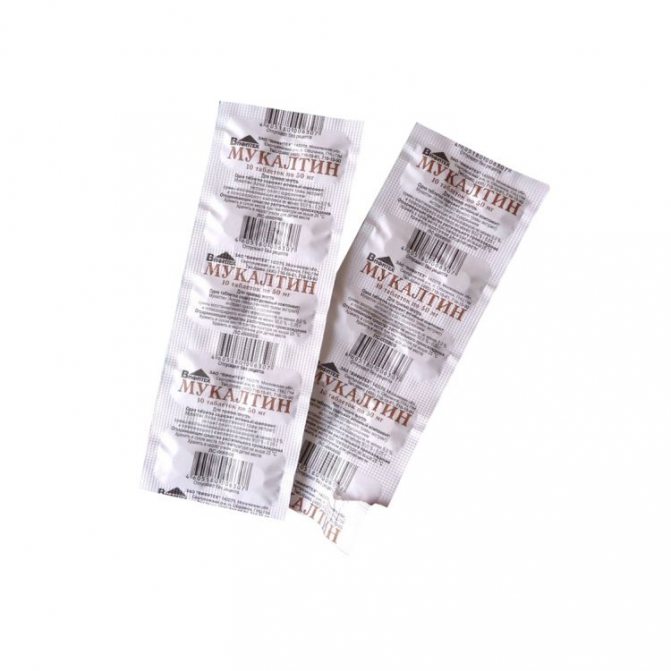
Mucaltin tablets are considered harmless, but not effective enough.
Syrups and tablets containing ambroxol
This active substance practically does not penetrate into mother's milk and is relatively safe for the baby. Mucolytics based on ambroxol have a combined effect - they thin and increase the volume of sputum, promote its removal from the respiratory tract, stimulating the cough reflex, and have an expectorant effect. A popular medicine of German origin - Lazolvan syrup (price about 200 rubles) is more expensive than its analogues Ambroxol, Ambrobene (about 100 rubles), but these drugs contain the same active substance, differing only in auxiliary components. For a wet cough, they are taken orally, 10 ml 3 times a day for 5–7 days. These medicines are also produced in the form of solutions for inhalation under the same trade name.
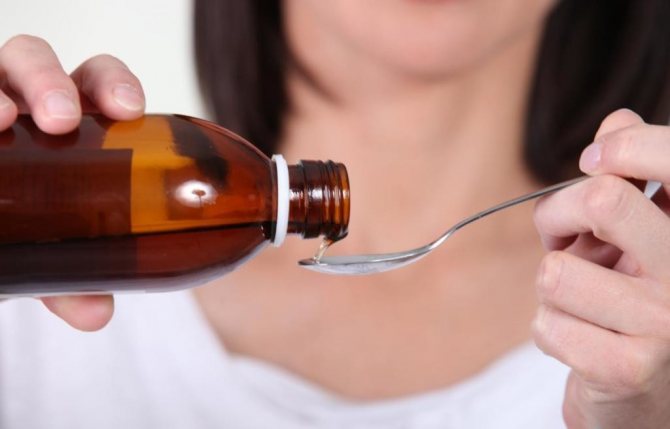
Many cough syrups are allowed during lactation, but they must be used with caution, on the recommendation of a doctor
An expectorant like Ambroxol (aka Lazolvan) will help reduce coughing. Herbal preparations based on anise, licorice root, plantain, thyme, etc. are also very effective. For example, Bronchicum, Breast Elixir, Gedelix, Doctor IOM. Medicines that contain bromhexine are absolutely contraindicated for nursing mothers.
Molly
https://www.u-mama.ru/forum/kids/0–1/520652/
I would just breathe in saline solution or Lazolvan, Ambrobene. It depends on the cough.
Madam
https://www.nn.ru/community/my_baby/my_baby/?do=read&thread=2684757&topic_id=62437124
Preparations with acetylcysteine
The drugs Fluimucil and ACC are produced based on acetylcysteine. The active substance destroys the molecules that form sputum, makes it less thick and facilitates discharge. The drugs are considered quite effective.
ACC is available in various forms: tablets, sachets, granules. The most popular drug is in the form of effervescent tablets, the cost of a package is approximately 400 rubles. Take 2 tablets twice a day. It is worth noting that the drug is approved during lactation, but with a caveat: if the benefit to the mother’s health outweighs the potential risk to the child, since the drug can cause allergies, digestive problems, and tachycardia. In these cases, treatment is stopped.
Photo gallery: common drugs with acetylcysteine
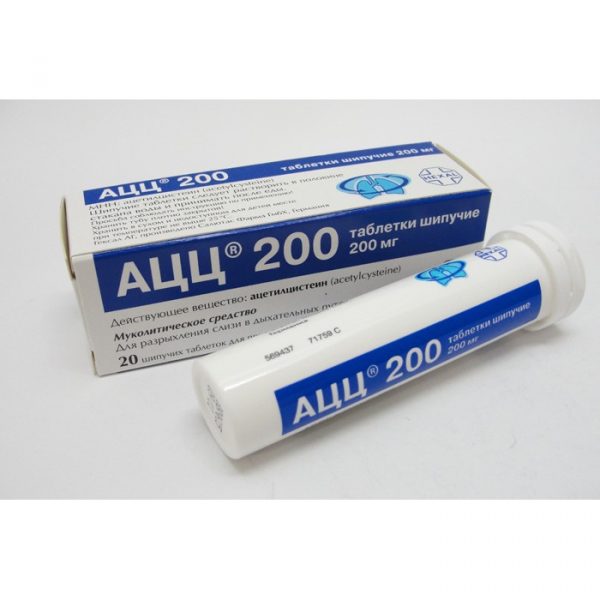
ACC is popular in the form of effervescent tablets
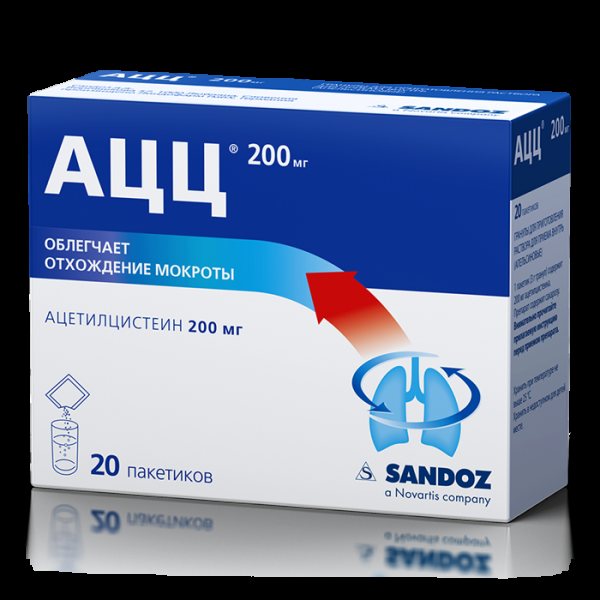
ACC is distributed in various forms, including sachets
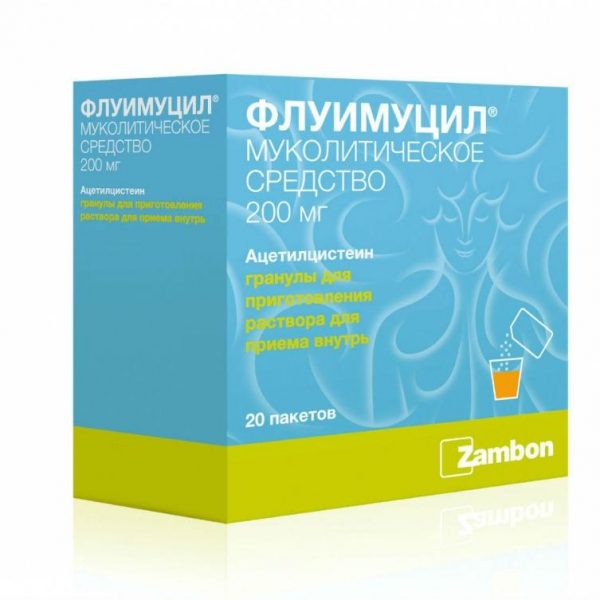
Fluimucil is another medicine based on acetylcysteine.
Antibiotics
If the cough is caused by bacteria and not a virus, then it is often impossible to do without bactericidal drugs that suppress the growth of pathogenic organisms, but only a doctor can determine this. Antibiotics should only be used as a last resort.
Medicines in this group, which are prescribed for respiratory tract infections and are suitable for nursing mothers:
- penicillins (for example, Ampicillin, Amoxiclav);
- cephalosporins (for example, Ceftriaxone);
- macrolides (for example, Erythromycin, Clarithromycin).
Photo gallery: examples of antibiotics prescribed for coughs during lactation
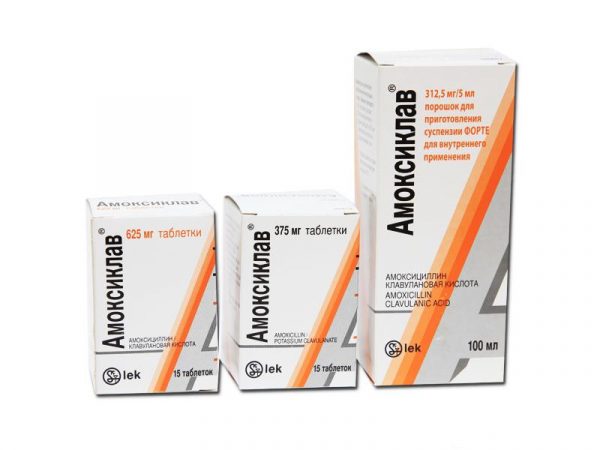
Amoxiclav is an antibiotic from the pinicillin group.
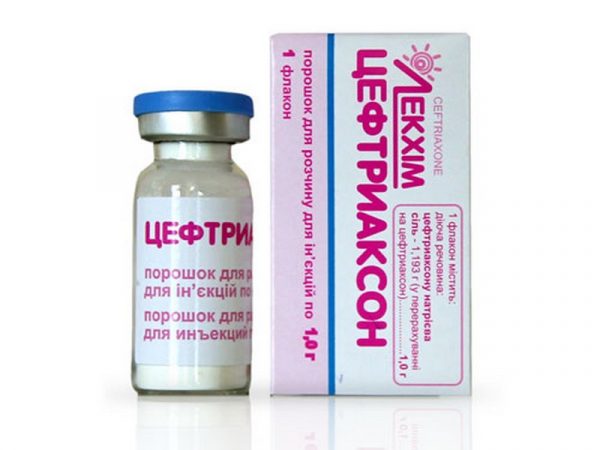
Ceftriaxone is an antibiotic from the cephalosporin group.
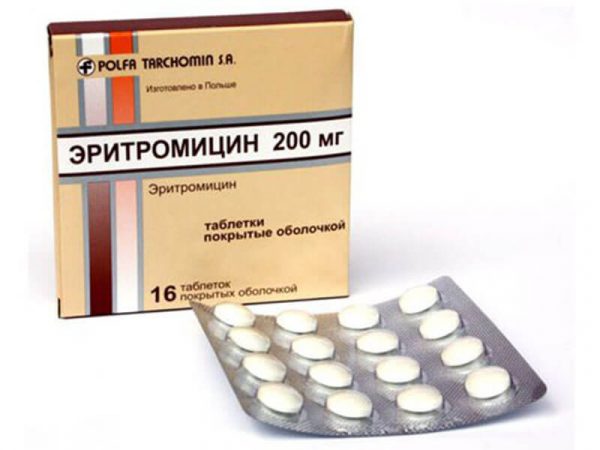
Erythromycin is an antibiotic from the macrolide group
Video: Dr. Komarovsky on the use of medications during pregnancy and breastfeeding
Treatment for bacterial infection
Bacterial infection causes diseases such as tonsillitis and otitis media, tonsillitis and pharyngitis, pneumonia and bronchitis. Such infections must be treated under strict medical supervision. In this case, the antibacterial agent Amoxiclav will help a nursing mother from coughing. The drug neutralizes harmful microorganisms very effectively and acts within 1-1.5 hours after administration.
Amoxiclav is a penicillin antibiotic. However, you can take the medicine in small doses during breastfeeding. During lactation, the drug can be taken one tablet or one spoon of suspension immediately after feeding every 6-8 hours. The appropriate dosage and type of medication are selected by the attending physician.

Folk remedies to alleviate the disease
Traditional methods of treatment are especially relevant and effective in the first days of cough. You may not have to resort to medications if you start therapy using methods that are safe for the baby and have been known for a long time.
Gargling
Infusions of calendula and chamomile are suitable for rinsing:
- It is necessary to pour boiling water (500 ml) into 1-2 filter bags of herbs.
- Let it brew for half an hour.
- You can gargle 3 times a day or more often (every 2 hours).

Gargles with soda and iodine have a positive effect on a sore throat:
- Take a glass of warm boiled water.
- Add a drop of iodine solution.
- Add ½ teaspoon baking soda.
- Mix.
The rinse solution must be prepared immediately before use. It is also important that the soda is fresh - the product expires and loses its properties within a month after opening the package.
Drink
Hot teas with raspberries, linden, sea buckthorn, and lemon will help the body replenish the lack of vitamin C, warm a sore throat, and deliver much-needed fluid during illness. At the same time, you do not need to force yourself to drink tea that is too hot - the main thing is that its temperature is not lower than body temperature. This is necessary so that the liquid is quickly absorbed by the body.
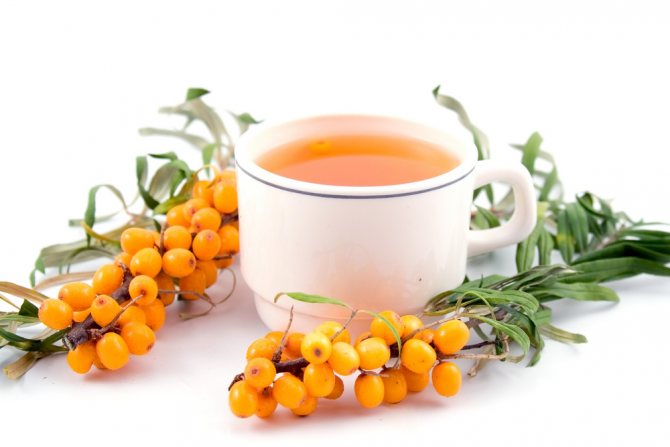
The temperature of the tea should not be lower than body temperature
It is worth considering that citrus fruits can cause allergies in the baby, so they should be used with caution.
Compresses
If the body temperature is not elevated, it is advisable to use warm compresses. Mustard plasters or boiled potatoes, mashed with a fork and wrapped in cotton cloth, are suitable. The heat source is applied to the upper chest or back in the lung area. Remember, when applying compresses, you should avoid the area of the heart and spine.
You can also warm your feet by immersing them in hot water for 10–15 minutes or pouring dry mustard into woolen socks, which should be put on before bed.
You can also stimulate the discharge of sputum with the help of cups. However, they need to be installed carefully; here you will need the help of a person with experience.
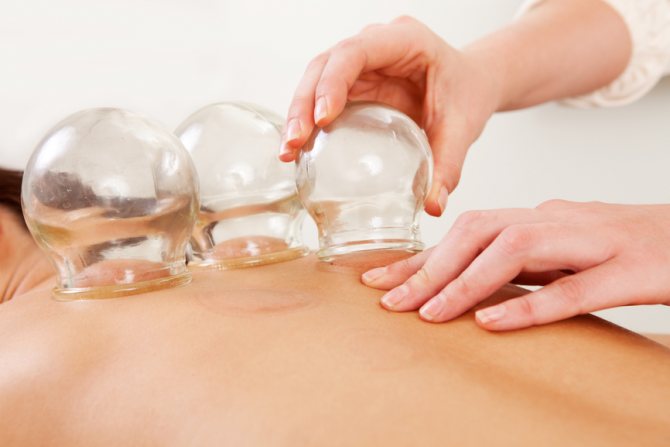
When treating with cupping, it is recommended to use the services of a professional
Milk
To treat a cough, milk should be drunk hot, with the addition of butter. If the baby does not have allergies, you can supplement the drink with honey.
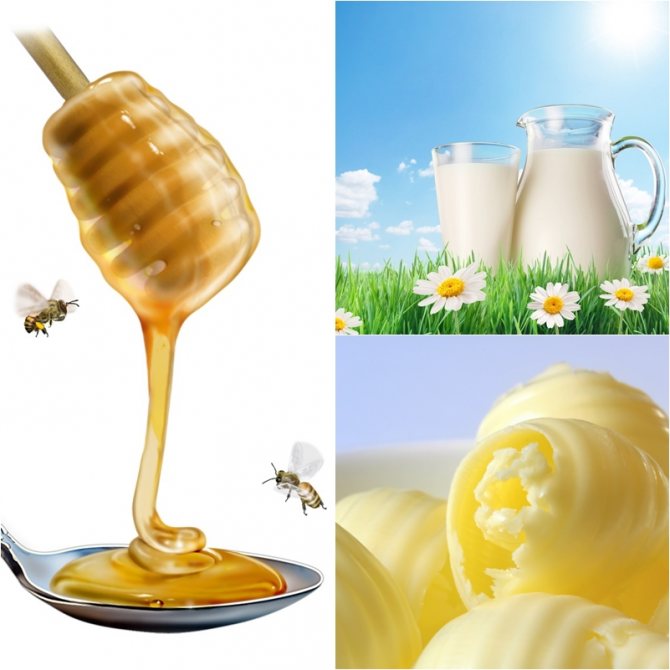
Milk, butter and honey - a classic traditional medicine recipe for coughs
You can also consume milk with chopped garlic or a pinch of baking soda.
Massage
If you have a wet cough, tapping on your shoulder blades will help relieve mucus. You should lie on your stomach on a flat surface. Using the edge of your palm, the assistant “beats off” the mucus by tapping on the back. It is important not to overdo it - the massage should not cause physical discomfort or pain.
Herbal medicine for cough during lactation
In cases where there are no contraindications to taking herbal medicines for cough and bronchial asthma in a nursing mother, you can pay attention to herbal medicine.
When breastfeeding, there are medicinal plants for mother and baby that can help relieve cough. These are fennel, anise and dill. Their fruits are used in medicine.
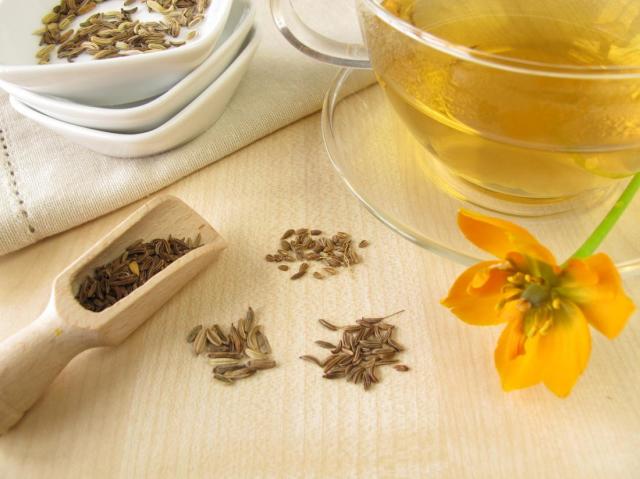
Fennel
The fruits contain essential oil, carotene, phytoncides, flavonoids, and vitamin C. The infusion has a carminative, antispasmodic and expectorant effect. In addition, it also increases the amount of milk in breastfeeding women. Based on fennel fruits, preparations for bloating in infants are produced - Plantex, Bebinos, Dill water, etc.
Anise
The fruits contain essential, fatty oil and other substances. They have expectorant, laxative, antispasmodic, carminative effects. The infusion is indicated for bronchitis, pneumonia, tracheitis. Little essential oil is included in the composition of Ammonia-Anise Drops and Breast Elixir, used as expectorants. Anise fruits are also present in preparations to enhance lactation.
Dill
The fruits contain fatty and essential oils, flavonoids and other substances. The infusion has an expectorant, carminative, antispasmodic effect. Just like fennel and anise, it helps to enhance lactation.
An infusion of the fruits of these plants is a universal remedy.
It is a safe expectorant for bronchitis, whooping cough, tracheitis, and pneumonia. Additionally, lactation is enhanced and there is a beneficial effect on the gastrointestinal tract of mother and baby. Subscribe to our VKontakte group
Prevention: practical recommendations
Mom needs to take care of her health in order to prevent it from deteriorating at such a crucial time - during breastfeeding. Unfortunately, pathogenic viruses and bacteria are present everywhere, and weakened immunity and hypothermia contribute to infection. You can reduce the likelihood of seasonal diseases if you wisely adjust your lifestyle, nutrition, and physical activity.
Hardening
A nursing mother, of course, should not resort to extreme measures, for example, dousing herself with cold water or swimming in an ice hole. It is enough to use the following techniques:
- walk barefoot at home (or outside in warm summer weather) for 15–20 minutes;
- practice contrast showers, creating a slight temperature difference;
- regularly take walks in the fresh air with your baby, gradually increasing the time you stay, while choosing comfortable clothes according to the weather.
Hardening procedures are carried out only in the absence of colds and other health problems.
Sport
During lactation, excessive physical activity is contraindicated, as this can lead to a decrease in milk production. But walking, short morning jogging, swimming, and exercise will help the body strengthen the immune system naturally.
Drugs contraindicated during lactation
What you can do for a cough while breastfeeding is not the only question that concerns mothers. Women are also interested in which medications can be harmful. One of these medicines is Tussamag syrup. This is a liquid alcoholic extract of the thyme herb. The instructions for this drug indicate that Tussamag should not be taken during lactation. Other contraindications include:
- chronic heart failure;
- renal failure;
- liver failure;
- hypersensitivity to components;
- pregnancy.
Another example is Doctor Mom syrup, which has an expectorant effect. This is a combination preparation of medicinal plants. Mothers are not recommended to take this medicine, since medicine does not know how the syrup can affect a nursing baby (experiments on pregnant and lactating women are not conducted for ethical reasons).
Many people are also familiar with medications from the Vicks Active line. The products included in it are designed for the comprehensive treatment of colds, eliminating symptoms such as nasal congestion, runny nose, and cough. Vicks Active drugs are effective, but they are prohibited for nursing mothers.

Cough of allergic origin
Often, a mother who is breastfeeding has a cough of an allergic nature. In this case, its treatment comes down to eliminating the cause that causes the unpleasant symptom, and not just to stopping the cough itself. To cleanse the body of harmful decay products, you can take Activated Carbon in the permitted dosage (no more than 10 tablets per day).
The drugs Cetirizine, Loratadine, Loridin, Alcedin, Erius are considered relatively safe during breastfeeding for allergic cough. It is better to avoid using Suprastin, since it causes drowsiness, lethargy, penetrates into the milk and can negatively affect the baby. The drugs Tavegil, Theophylline and Diazolin are also prohibited for use in the first six months of breastfeeding.
Attention! The main condition for successful treatment of allergic cough is to find out the cause and limit contact with the irritant. If this is a product, you should exclude it from your diet. If you react to medications, cosmetics and detergents, you need to stop using them. Common types include allergies to pollen and animal dander.
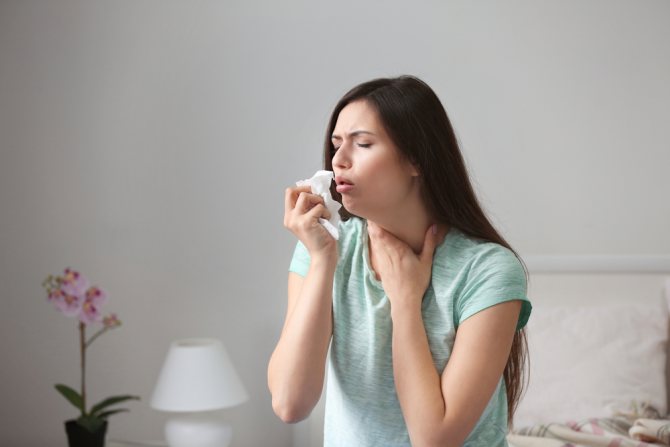
Before taking medications, it is important to determine whether the cough is allergic in nature.
Traditional methods of treating cough
The famous pediatrician Dr. Komarovsky says that folk remedies will not interfere with the treatment of cough, but they will not speed up the recovery process.
It takes an average of 5 days to develop immunity against infection, and no unconventional methods will help you deceive the body, but they improve the process of sputum discharge and strengthen the immune system, which is also important.
How to cure a cough with folk remedies
Tea with raspberry or blackcurrant jam - a little sweet medicine with a high content of ascorbic acid will significantly improve your well-being. Drink the drink before bed, it increases sweating, bacteria and toxins will leave the body faster.
Warm milk with honey and butter - a drink familiar from childhood, helps eliminate pain, swelling and inflammation in the throat, and softens dry cough.
Just don’t add honey to hot milk; many believe that when heated, the beekeeping product acquires carcinogenic properties - this fact has not yet been scientifically proven, but it’s not worth the risk.
Black radish with honey is not the most pleasant to taste, but it is a very useful remedy for a dry, lingering cough.
Wash the vegetable, remove the top, make a small depression, pour honey into it. After 12 hours, juice will appear, which should be taken 1 tsp. in a day.
For rinsing, you can use an infusion of sage, chamomile, calendula - pour 10 g of raw material with 250 ml of boiling water, leave in a closed container for a quarter of an hour. The procedure should be carried out every 2 hours for 7–10 minutes.
Should I continue breastfeeding?
If a woman gets sick while breastfeeding, then she should not refuse to breastfeed her baby. On the second or third day, the mother’s body begins to produce antibodies, which are transmitted to the baby with milk and protect it from the disease. It is important to comply with the conditions necessary for a speedy recovery and to prevent infection of the infant:
- wear a gauze bandage when in close contact with the baby;
- regularly ventilate the room;
- maintain an optimal level of air humidity;
- do not overheat the living space to avoid drying out the already inflamed mucous membranes of the larynx and nose.
You should not increase the dose of medications prescribed by your doctor in the hope of a speedy recovery. This can provoke the development of an overdose and negative reactions from the baby’s body. Also, without stopping natural feeding, it is worth monitoring the process of preparing formulations according to traditional recipes and monitoring the shelf life of the drugs.

Cough is not a reason to stop breastfeeding

